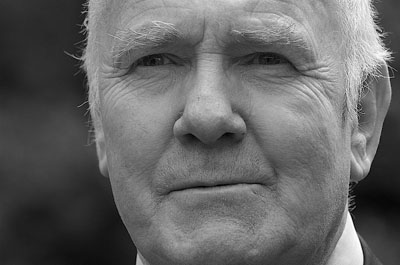Capitalising on tragedy
Lord Carlile said on Newsnight:
We have to learn proportionate lessons from what has occurred.
We mustn’t rush to judgment. But we must ensure that the police and the security services have for the future the tools they need which will enable them to prevent this kind of attack taking place.
I hope that this will give the Government pause for thought about their abandonment for example of the Communications Data Bill and possibly pause for thought about converting control orders into what are now called Tpims, with a diluted set of powers.
According to ITN:
Labour ex-home secretary Lord Reid said such measures were “essential” to combating terrorism, warning it could otherwise take “some huge tragedy” to show the decision was wrong.
It is highly difficult to know how useful the CDB would or could be for detection of serious incidents like this, but very frequently, human intelligence turns out to be more effective and useful.

The CDB’s central plank involved massive data collection coupled with data mining. Many people such as Bruce Schneier have pointed out that data mining for ‘suspicious’ but very rare patterns will return ‘false positives’ just because of their rarity; improving the tightness of pattern matching on the other hand simply means you miss the incident when it happens.
The best argument that the Home Office put forward for it has been that, when they find someone is suspicious, it is useful to go back through communications records. But that puts us all under suspicion for the times when the police have a suspect, and is already investigating them. How often would such cases really reveal information that was so new that the outcome of a case would be different?
As Peter Sommer pointed out in our Digital Surveillance report, usually other quite mundane kinds of activity, such as gathering resources and planning with others, are what reveals the criminal’s hand.
Lord Carlile and John Reid have a long history of making calls like this. They are in poor taste, and should be seen for what they are: attempting to take advantage of someone’s death for political advantage. No doubt they are in touch with people in the Home Office who continue to have ambitions for the Snoopers’ Charter, but it is unclear that the public are simply going to respond in the way they want.
Rather, these calls are a tactic which can convince fearful and risk-averse politicians into doing the wrong thing in the name of being able to say they did everything in their power, even if those things are in fact pointless.
Widespread erosions of our rights aren’t an acceptable response to people who seek to limit our liberty through violence. Calls like those from Lord Carlile if answered would mirror the outcomes that the perpetrators seek, by overstating their influence on our society, and undermining the legitimacy of our laws. We can only preserve our freedom by protecting it, not by removing it, step by step.
Political leaders including Nick Clegg and Ed Miliband must firmly reject these calls, and reprimand Carlile and Reid for their behaviour.
